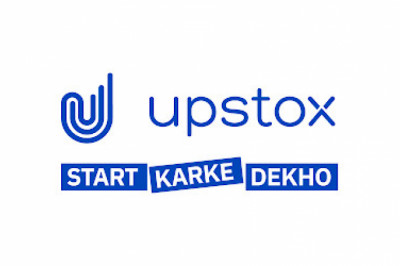views

Managing Emotions at Work: Emotional Intelligence and Productivity
Throughout the day there are many points where we would like to control what we think or feel. This is where emotional management can be useful. Emotional management refers to the ability to control one’s thoughts, emotions, and behaviors. One who possesses effective emotional management skills is able to regulate his or her emotions. A topic we've written extensively about, emotional intelligence, is also related to emotional management.
There are different different parts of emotional management. In a 2020 study, the emotional management ability of 926 college students were measured through questionnaires. Their ability was examined on the basis of five dimensions: control negative venting ability, rational control of emotional ability, seek external support, control negative suggestion, positive remedial ability (Fan 2019).
The first dimension is controlling negative venting, this refers to someone's ability to selectively choose when to air out negative emotions. Rational control of emotional ability means having a reasonable emotional response. Seeking external support refers to someone looking for help from others. Controlling negative suggestions means the ability to control emotions in the face of statements that are meant to deter or suppress an emotion. Positive remedial ability refers to someone’s ability to fix the situation for the better. These five aspects of emotional management ability demonstrate how well someone can regulate their thoughts and emotions.
The Mayer-Salovey-Caruso Emotional Intelligence Test (MSCEIT) is a way of measuring emotional intelligence. This test divides emotional intelligence into four domains: perceiving, using, understanding, and managing emotions. Managing emotions includes “the ability to intelligently integrate the data of emotions in yourself and in others in order to devise effective strategies that help you achieve positive outcomes” (Jacobs, Snow, Geraci, Vythilingam, Blair, Charney, Pine, & Blair 2008).
Here is an example of a managing emotions question: Debbie just came back from vacation. She was feeling peaceful and content. How well would each action preserve her mood? Rate each action from 1 (very ineffective) to 5 (very Effective)
Action 1: She started to make a list of things at home that she needed to do.
Action 2: She began thinking about where and when she would go on her next vacation.
Action 3: She decided it was best to ignore the feeling since it wouldn't last anyway.
Regulating emotions is an important skill to learn. Emotions can have a proud impact on many different aspects of life. In a 2020 study from Hiroshima University in Japan, 15 plastic toy painters working in Laos were required “to answer a questionnaire and wear a wristband biometric sensor that could capture physiological responses” from 3 consecutive working days. Participants’ autonomic nervous system was evaluated to determine heart rate variability which was used to differentiate between emotions. The results showed that “happiness was found to be significantly related to an increase in work output” (Kadoya 2020). These results show that emotions have an impact on productivity. The ability to control one’s emotions can prove helpful in the workplace.
One way that emotional management can improve productivity is through increasing team cohesion. A study from the University of Valencia in Spain demonstrated that a “team emotional management intervention, on the one hand, increases synergy effects, which produce enhanced team task performance and have a positive effect on the motivational processes within the team, thus leading to more team engagement” (Holtz 2020).
In this research synergy effects refers to when group performance exceeds the combined performance of individuals and “represents an effective use of the team’s resources” (Holtz 2020). Learning emotional management skills benefits team efforts as a whole. This study shows that with emotional management skills training, a team can do better than expected. After an emotional management intervention, performance, motivation, and team engagement improved.
Emotional management skills prove helpful within coworker relationships. A 2020 study focused on the role of emotional regulation in exchanges between coworkers. In this research deep actors refer to employees who “are driven to regulate their emotions with coworkers for prosocial reasons” (Gabriel 2020). There were “benefits for deep actors in terms of their work goal progress and trust in coworkers”(Gabriel 2020). Employees who can effectively regulate their emotions have the ability to build strong relationships with their coworkers and demonstrate productivity benefits.
Emotional management also improves individual performance. A study from Chung Yuan Christian University in Taiwan focused on emotional, intellectual, and spiritual intelligence in relation to employee performance. 107 employees were included in the study and emotional intelligence was measured through a questionnaire. The findings demonstrated that “emotional intelligence influences positively and significantly the employee’s performance” (Lee 2020).
The connection between emotional management and work performance also holds true for those in the military. A 2019 study found that in the military “work‐related emotional intelligence (W‐EI) positively predicted task performance, discipline, organizational citizenship, and employees with higher W‐EI levels received a greater number of performance commendations” (Krishnakumar 2019). This is an interesting finding because the military is a particularly stressful career but emotional intelligence proved helpful in regard to job performance.
Greater emotional management skills also predicts increased job performance for young people. A 2020 study took data from 184 participants aged 17 to 30 to examine anxiety as a predictor of work performance and job satisfaction with emotional regulation and coping skills as moderators. The results demonstrated that “greater conscientiousness and greater anxiety, and greater ER [emotional regulation] skills and greater anxiety, predicted more positive work outcomes” (Chandra 2020). Emotional regulation was measured through a questionnaire.
Try it for yourself: Rate the following statements scale from 1 (strongly disagree) to 7 (strongly agree).
When I want to feel more positive emotion (such as joy or amusement), I change what I'm thinking about
When I want to feel less negative emotion, I change the way I'm thinking about the situation
Another variable assessed in this study was positive coping skills. Healthy coping skills help to regulate emotions. Here are some questions from the positive coping skills questionnaire.
Rate these statements from 1 (not at all) to 4 (a lot)
I make a plan of action
I try to concentrate my efforts on doing something about it
I try to grow as a person as a result of the experience
Even if you are not in a creative industry, thinking of new ideas is helpful. Everyone could benefit from thinking about challenges from a new perspective. Both work and personal problem solving can be improved by creativity. Emotional management skills can help you increase your creativity, helping you solve problems, and increasing productivity.
A 2019 study from the University of Coimbra in Portugal included 519 participants and investigated the relationship between emotional intelligence and creativity. First, the findings showed that emotional intelligence leads to creativity. Second, it was found that emotional intelligence also leads to self-motivation which has a positive impact on creativity. Self motivation was composed of three parts; need for achievement, need for affiliation, and need for power (Silva 2019).
Here are some examples of the questions from this study
Rate the following statements 7-point Likert scale (1= strongly disagree and 7 =strongly agree)
Emotional Intelligence:
I trust in my skills
I accept my fault and failures
Creativity:
I suggest new ways to reach goals
I suggest new ways to improve quality
Strongly agreeing to all of these statements demonstrates emotional intelligence and creativity.
Many people have difficulties describing exactly how they feel. Labeling emotions is one of LIFE’s main focuses. This is called emotional granularity. Being specific about emotions is the first step in emotional regulation. Practicing emotional granularity increases emotional intelligence by improving one’s ability to evaluate their own emotions.
A 2019 study of 191 employees from various industries in Vietnam found that “both self-emotion appraisal and others’ emotion appraisal precede emotion regulation, leading to a positive effect on job performance” (Nguyen 2019). The ability to evaluate one’s own emotions and evaluate the emotions of others comes before emotional regulation, which leads to productivity.
Similarly the inability to evaluate one’s own emotions and the emotions of others can prove problematic in a work environment. A study from Vytautas Magnus University in Lithuania found that volunteers with low emotional intelligence struggled with “the inability to recognize one’s own and others’ emotions” which is particularly a problem when working with vulnerable populations (Vveinhardt, Bendaravičienė, & Vinickyte 2019). It is important to be able to recognize one’s own and others’ emotions within a work setting. The ability to label emotions has proved beneficial while the inability to do that has proven problematic.
The LIFE Intelligence app is a 9-topic science-backed program that holistically covers self, career, and relationship skills. A huge part of the program is in helping users develop emotional intelligence and emotional management skills.
One of the app's two main features is a toolkit of coping, communication, and problem-solving exercises for each negative mood you may experience. First. you select your mood from a mood wheel. The mood wheel contains eight main emotions then guides you to a specific emotion, improving your ability to label how you feel. For example within the anger section of the mood wheel, there are the specific emotions of annoyed, frustrated, resentful, indignant, envious, enraged. Joy includes the moods serene, grateful, relieved, content, fulfilled, and in love.
Once you select a mood for the day, you can write what is causing that mood. Then you will be given exercises, tips, and information about how to manage that emotion. For example, when you select frustration as your mood, you will be given information on the need for control and gratitude as well as breathing and grounding exercises. So, if you're looking for an on-the-go way to manage your emotions, try downloading LIFE Intelligence free today.
It is important to remember that emotional management is a vital skill that can help with your personal life as well as in the workplace. Emotional management impacts productivity in a team setting, on an individual basis, and in regard to creativity. LIFE can help develop emotional management skills that positively impact work performance.
References
Chandra, S. (2020). Interactions between anxiety subtypes, personality characteristics, and emotional regulation skills as predictors of future work outcomes. Journal of Adolescence (London, England.), 80, 157–172.
Fan, H. (2019). A Study on the relationship between college students’ emotional management ability and mental health. Matrix Science Medica, 3(2), 25–27.
Gabriel, K. (2020). Are Coworkers Getting Into the Act? An Examination of Emotion Regulation in Coworker Exchanges. Journal of Applied Psychology, 105(8), 907–929.
Holtz, O. (2020). Virtual Team Functioning: Modeling the Affective and Cognitive Effects of an Emotional Management Intervention. Group Dynamics, 24(3), 153–167.
Jacobs, M., Snow, J., Geraci, M., Vythilingam, M., Blair, R. J., Charney, D. S., Pine, D. S., & Blair, K. S. (2008). Association between level of emotional intelligence and severity of anxiety in generalized social phobia. Journal of anxiety disorders, 22(8), 1487–1495. https://doi.org/10.1016/j.janxdis.2008.03.003
Kadoya, K. (2020). Emotional Status and Productivity: Evidence from the Special Economic Zone in Laos. Sustainability (Basel, Switzerland), 12(4), 1544–.
Krishnakumar, P. (2019). Affective and effective: Military job performance as a function of work‐related emotional intelligence. International Journal of Selection and Assessment, 27(2), 203–215.
Lee, K. (2020). Analysis of the Influence of the Emotional, Intellectual and Spiritual Intelligence on Employee Performance with Work Motivation as a Moderating Variable. Management and Economics Review, 5(1), 51–67.
Nguyen, N. (2019). Relationship between Ability-Based Emotional Intelligence, Cognitive Intelligence, and Job Performance. Sustainability (Basel, Switzerland), 11(8), 2299–.
Silva, C. (2019). The impact of emotional intelligence on creativity, the mediating role of worker attitudes and the moderating effects of individual success. Journal of Management & Organization, 25(2), 284–302.
Vveinhardt, B., Bendaravičienė, R., Vinickyte, I. (2019). Mediating Factor of Emotional Intelligence in Intercultural Competence and Work Productivity of Volunteers. Sustainability (Basel, Switzerland), 11(9), 2625–.












